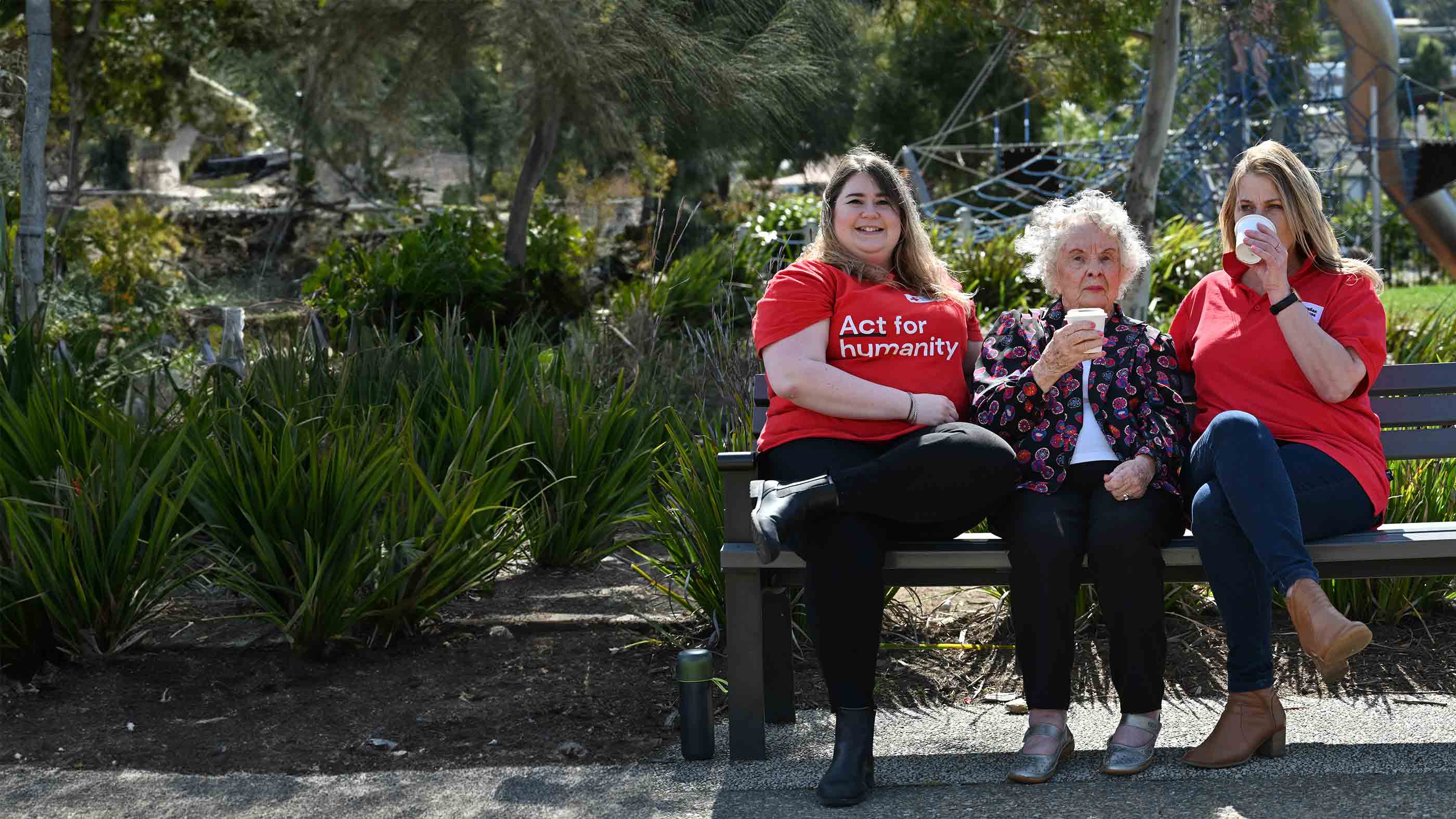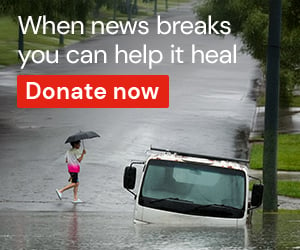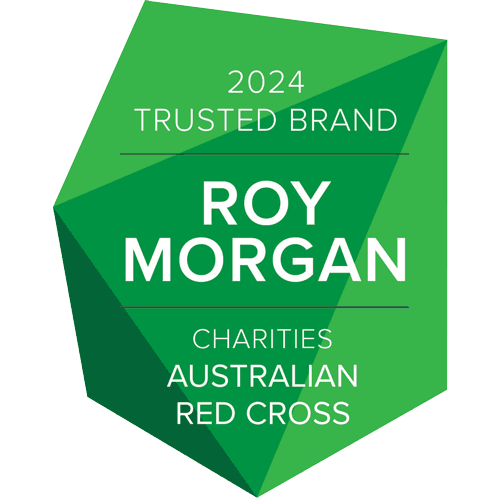
Latest news and stories
Filter stories by topic
How locals led the recovery from the Vanuatu earthquake
Andrew Nayo, a leader in Vanuatu, shares the devastating impact of a massive earthquake on his community and the challenges they faced in recovering.
Serving communities with care
Recovery after a disaster is about more than rebuilding – it involves restoring hope, stability, and emotional resilience.
Finding warmth after two disasters
The power of community shines through in Lismore in the wake of a cyclone and devastating flooding.
New Year’s resolutions worth keeping
3 ways businesses can upskill in international humanitarian law in 2025.
Extreme Heat Awareness Day
We’re teaming up with Sweltering Cities, organisations, experts, and others across Australia to launch the first-ever Australian Extreme Heat Awareness Day on 5 February 2025.
Nursing through crisis: 36 days in Gaza
A returning delegate shares a powerful firsthand account the challenges of delivering humanitarian aid in a conflict zone.
Reflections on the 2024 International Conference of the Red Cross and Red Crescent
In October 2024 Movement and government representatives from across the globe gathered for the International Conference of the Red Cross and Red Crescent (International Conference), a pivotal event hosted every four years.
Lifelong humanitarian honoured for dedication to reuniting families in PNG
PNG Red Cross has been recognised on the global stage for their Restoring Family Links work.
Modern slavery is hidden in plain sight
Many of us assume modern slavery in Australia operates in the shadows, hidden away behind closed doors, orchestrated by a criminal underworld that everyday Australians do not engage with. But the reality is this crime often unfolds under our noses in plain sight.
Israel and the Occupied Palestinian Territory
An update on how all parts of the International Red Cross and Red Crescent Movement, including Australian Red Cross, are responding to the humanitarian crisis.
Reuniting families in the fallout of tragedy
The Restoring Family Links program helps people find family members who are missing due to conflict, disaster or migration.
With a text, Australian Red Cross delegate Mark was called up to help in Gaza. Here’s what he saw.
After receiving a call-up, Australian Red Cross delegate Mark Myerson was one of several aid workers tasked with building a field hospital in Rafah.
Australia turns red for Red Cross
On 13 August, landmarks across Australia are turning red to shine a light on 110 years of Australian Red Cross.
The Joy of Many Colours Multicultural Festival
Connected Women’s Joy of Many Colours Festival is an annual celebration of the vibrant tapestry of cultures that collectively shape our communities.
Refugee is a circumstance, not an identity
Harnessing the collective strength of our communities to build a brighter, more equitable future for all.
The day my life changed forever
A former journalist who escaped danger in Africa and sought safety in Australia shares her story to help others understand what drives people to seek asylum.
10 things you can do to help this Refugee Week
Play your part in building a more welcoming Australia for refugees.
When crisis strikes, we are there for people
Thanks to our generous donors our teams are on call, ready to help 24/7, 365 days a year.
Queensland and New South Wales Floods Report
Two years after devastating storms and floods hit Queensland and New South Wales, the work of recovery continues.
A global Movement responds: two years of conflict in Ukraine
Australian Red Cross Ukraine Crisis Appeal two-year impact report.
What being there looks like when disasters strike
The generosity of our donors puts our people on the ground where it’s needed most.
How your donation made a difference in Türkiye and Syria
From heartbreak to healing: Türkiye Syria Earthquakes Appeal 12 month impact report
“I always thought the water would go somewhere, but not in the house.”
When Priscilla had to leave her home in Ballina, NSW, as floodwaters rose, Red Cross was there for her.
Early response is critical
In the darkness at 2:30am, Ron and Fleur waded through waist-high water to find safety on the steps of the local hall.
Charity donations of $2 or more to Australian Red Cross may be tax deductible in Australia. Site protected by Google Invisible reCAPTCHA. © Australian Red Cross 2025. ABN 50 169 561 394


